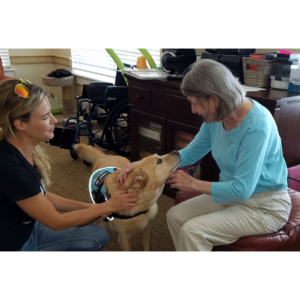Puppy love can be risky for the elderly
In my years as a long-term care editor, I’ve read and written about wonderful pet therapy programs that engage residents and instill them with a zest for life. From a therapy horse to birds to cats and dogs and a variety of other zoological visitors, residents have been entertained by their antics for years. And that will continue.
However, there is a little glitch, I’ve discovered. At the Communicable Disease Conference in Canberra, Australia, researchers presented their findings from a study of Campylobacter jejuni outbreaks in two Australian aged care facilities. In two nursing homes, 15 residents were stricken with gastroenteritis.
A healthy four-month-old puppy that visited the homes was identified as the carrier of the transmittable bacteria, according to an Australian news item. The elderly are highly susceptible to Campylobacter bacteria.
The bottom line is that while cats, dogs and other animals bring smiles and happiness to seniors, the wisest course of action would be to refrain from inviting dogs under one year—whether from an organization or a well-meaning family—from visiting.
Related article: Horseplay Encouraged

Sandra Hoban was on I Advance Senior Care / Long-Term Living’s editorial staff for 17 years. She is one of the country’s longest-serving senior care journalists. Before joining Long-Term Living, she was a member of the promotions department at Advanstar Communications. In addition to her editorial experience, Sandi has served past roles in print and broadcast advertising as a traffic and talent coordinator.
Related Articles
Topics: Activities











